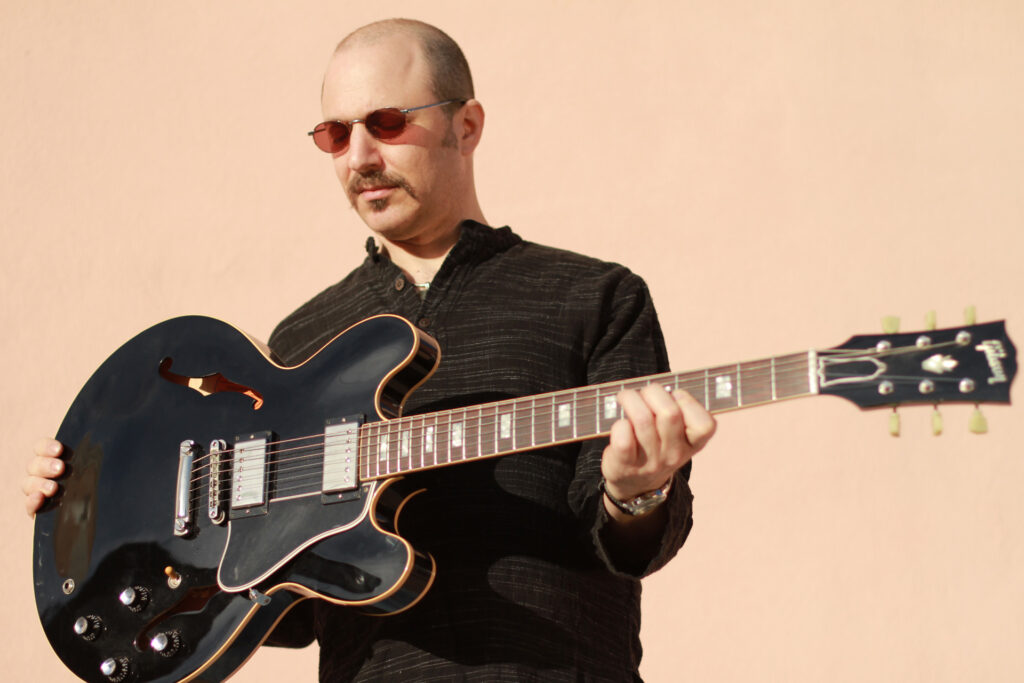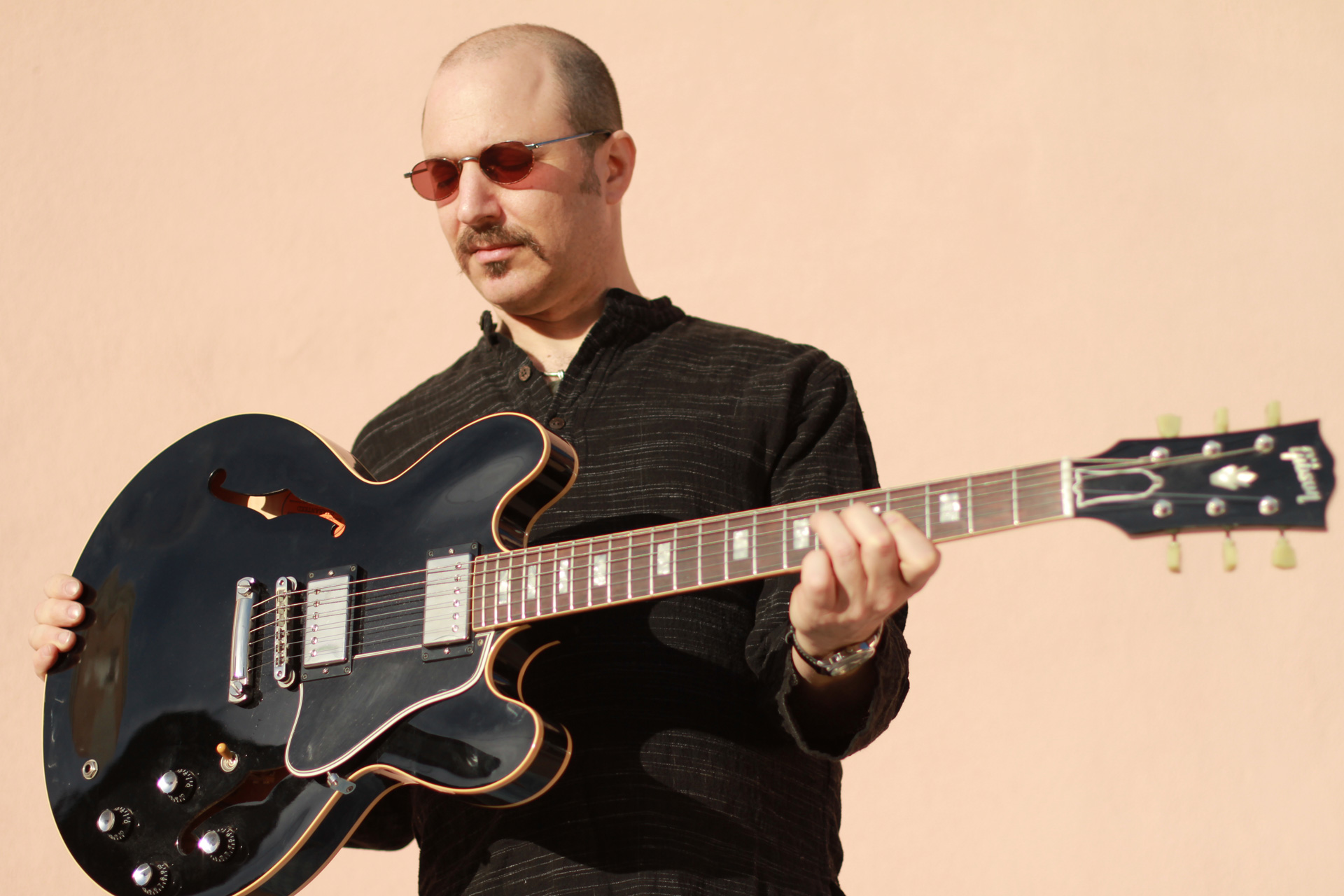
Russ Spiegel: The Undiscovered Guitar Maestro Shaping Modern Jazz
In the ever-evolving landscape of modern jazz, certain names resonate with a unique blend of technical prowess, artistic vision, and a deep understanding of musical history. One such name, perhaps not yet a household one, but steadily gaining recognition among aficionados and fellow musicians alike, is Russ Spiegel. This article delves into the career, musical style, and contributions of Russ Spiegel, a guitarist whose innovative approach and dedication to the craft are leaving an indelible mark on the contemporary jazz scene.
Early Life and Musical Beginnings
While specific details on Russ Spiegel’s early life are somewhat scarce, it is known that his journey into music began with a deep fascination for the guitar. Like many aspiring musicians, he spent countless hours honing his skills, absorbing influences from a wide range of genres. However, it was jazz that truly captured his imagination, drawing him into its intricate harmonies, improvisational freedom, and rich history.
Developing a Unique Sound
What sets Russ Spiegel apart is his ability to synthesize diverse musical elements into a cohesive and distinctive sound. His playing reflects a deep understanding of jazz tradition, incorporating elements of bebop, hard bop, and modal jazz. But he doesn’t simply imitate the masters; he builds upon their foundations, adding his own unique voice through sophisticated harmonic concepts, rhythmic complexity, and a keen ear for melody. Russ Spiegel’s sound is also infused with elements of blues, rock, and even world music, creating a sonic tapestry that is both familiar and refreshingly original.
Key Musical Influences
Identifying specific influences on an artist like Russ Spiegel is a complex undertaking, as his musical vocabulary is clearly vast and eclectic. However, it is safe to say that he draws inspiration from the giants of jazz guitar, such as Wes Montgomery, Joe Pass, and Jim Hall. These masters are renowned for their impeccable technique, melodic inventiveness, and ability to create captivating musical narratives. In addition to guitarists, Russ Spiegel’s playing also suggests influences from iconic composers and improvisers like John Coltrane, Miles Davis, and Thelonious Monk. This diverse range of influences contributes to the depth and complexity of his musical expression.
Notable Albums and Performances
Russ Spiegel’s discography, while perhaps not extensive, is a testament to his dedication to quality over quantity. Each album showcases his growth as a musician and composer, exploring new sonic territories while maintaining his signature sound. He’s known for crafting immersive listening experiences. His live performances are particularly noteworthy, as they offer a glimpse into his improvisational prowess and his ability to connect with audiences on a profound level. Whether performing solo, with a trio, or as part of a larger ensemble, Russ Spiegel consistently delivers captivating and memorable musical experiences. Keep an eye out for upcoming shows and releases, as he continuously pushes the boundaries of his artistry.
Contributions to Jazz Education
Beyond his performance career, Russ Spiegel is also committed to jazz education. He has conducted workshops and masterclasses, sharing his knowledge and experience with aspiring musicians. His teaching approach emphasizes the importance of mastering fundamental techniques, developing a strong understanding of music theory, and cultivating a unique artistic voice. Russ Spiegel believes that jazz is a living art form that must be passed down to future generations, and he is dedicated to nurturing the talents of young musicians. [See also: Jazz Guitar Techniques for Beginners]
The Role of Improvisation in Russ Spiegel’s Music
Improvisation is at the heart of Russ Spiegel’s musical aesthetic. He approaches each performance as an opportunity to create something new and spontaneous, drawing upon his vast musical vocabulary and his deep connection to the present moment. His improvisations are characterized by their melodic inventiveness, harmonic sophistication, and rhythmic complexity. He’s able to seamlessly weave together disparate musical ideas, creating a cohesive and compelling narrative. For Russ Spiegel, improvisation is not simply a technical exercise; it is a form of self-expression, a way to communicate emotions and ideas that cannot be conveyed through words alone. He believes in the power of spontaneous creation.
Critical Acclaim and Recognition
While Russ Spiegel may not be a household name, he has garnered significant critical acclaim within the jazz community. His albums have received positive reviews from leading jazz publications, and he has been praised for his technical prowess, his compositional skills, and his unique artistic vision. Fellow musicians also hold him in high regard, recognizing his dedication to the craft and his contributions to the evolution of modern jazz. As his career continues to unfold, it is likely that Russ Spiegel will receive even greater recognition for his exceptional talent and his unwavering commitment to artistic excellence. [See also: Famous Jazz Guitarists of the 21st Century]
The Future of Russ Spiegel’s Music
The future looks bright for Russ Spiegel. With his talent, dedication, and unwavering commitment to artistic growth, he is poised to make even greater contributions to the world of jazz. He is currently working on new projects that promise to be both innovative and deeply personal. As he continues to explore new sonic territories and push the boundaries of his musical expression, Russ Spiegel is sure to captivate audiences and inspire fellow musicians for years to come. We anticipate even more growth and innovation from Russ Spiegel.
Analyzing Russ Spiegel’s Harmonic Approach
One of the most distinctive aspects of Russ Spiegel’s playing is his sophisticated harmonic approach. He utilizes a wide range of chord voicings, substitutions, and progressions, creating a rich and complex harmonic landscape. His understanding of music theory is evident in his ability to manipulate chords and scales in unexpected and innovative ways. He often incorporates altered dominants, extended harmonies, and modal interchanges to create a sense of tension and release. This harmonic complexity is not simply a technical exercise; it is an integral part of his artistic expression, adding depth and nuance to his musical narratives. Russ Spiegel has a deeply sophisticated grasp of musical harmony.
The Rhythmic Complexity in His Compositions
Beyond his harmonic sophistication, Russ Spiegel’s compositions are also characterized by their rhythmic complexity. He often employs unusual time signatures, syncopation, and polyrhythms to create a sense of rhythmic tension and excitement. His understanding of rhythmic interplay is evident in his ability to create grooves that are both complex and engaging. He often incorporates elements of Latin jazz, funk, and other world music traditions into his rhythmic vocabulary. This rhythmic complexity is not simply a technical flourish; it is an essential part of his artistic vision, adding energy and dynamism to his musical expression. The rhythmic elements are a crucial part of Russ Spiegel’s unique sound.
Russ Spiegel’s Gear and Equipment
While the specific gear preferences of Russ Spiegel might vary, understanding the equipment choices of a guitarist often provides insight into their sound. Jazz guitarists typically favor hollow-body or semi-hollow body guitars for their warm, resonant tones. Amplifiers are usually tube-based, chosen for their natural compression and responsiveness. Effects are often used sparingly, with reverb and delay being common choices to add depth and ambience. The specific choices will influence the overall sound and playing style of Russ Spiegel, contributing to his signature tone. Knowing his gear can help appreciate the nuances of his sound.
How to Learn from Russ Spiegel’s Style
Aspiring guitarists can learn a great deal from studying Russ Spiegel’s playing style. Begin by transcribing his solos and analyzing his chord voicings. Pay close attention to his rhythmic phrasing and his use of dynamics. Practice improvising over common jazz standards, incorporating elements of his harmonic and rhythmic vocabulary. Most importantly, listen to his music actively and try to understand the underlying concepts and ideas that inform his playing. Learning from Russ Spiegel requires diligent study and a deep appreciation for the art of jazz guitar. His music provides a rich source of inspiration and learning for any aspiring jazz musician.
The Enduring Legacy of Russ Spiegel
In conclusion, Russ Spiegel is a true musical innovator whose contributions to modern jazz are sure to be felt for years to come. His technical prowess, artistic vision, and dedication to education have established him as a significant figure in the contemporary jazz scene. Whether you are a seasoned jazz aficionado or a newcomer to the genre, exploring the music of Russ Spiegel is a rewarding experience that will expand your appreciation for the art of jazz guitar. He is a guitarist to watch and a musician whose voice deserves to be heard. Russ Spiegel is crafting an enduring legacy. [See also: The Future of Jazz Guitar]

